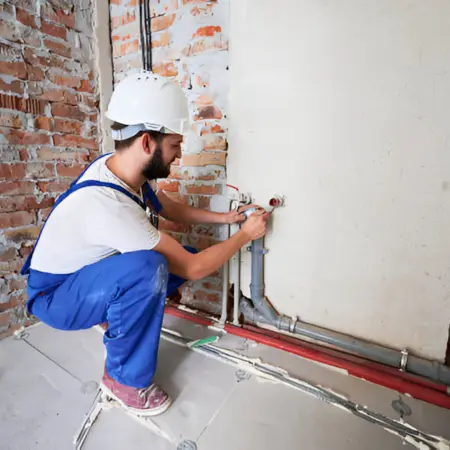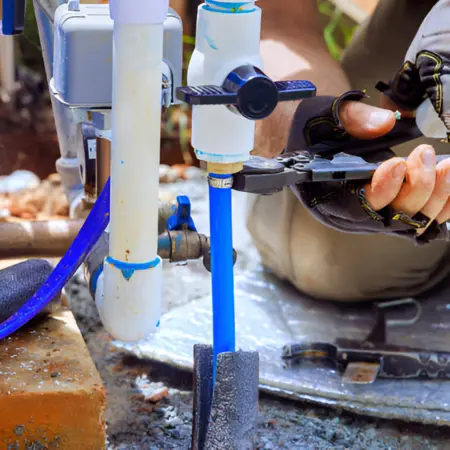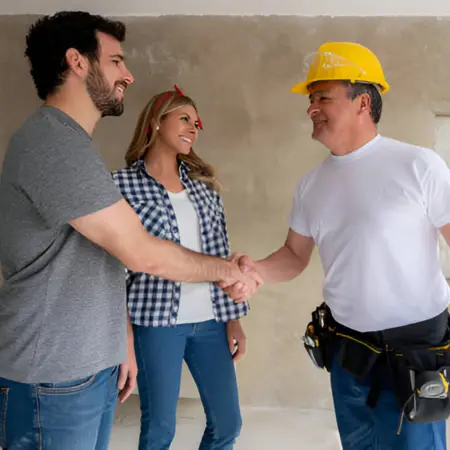Are you thinking about repiping your home?
It’s a big job but can save you from leaks and costly repairs.
This guide will cover the must-know basics to help you plan the project smoothly.
Key Takeaways
- Repiping your home is a big step that requires careful planning.
- Costs depend on the type of pipes, labour, and permits needed.
- Larger homes and hidden pipes can increase the cost and timeline.
- Financing options like loan plans can help manage costs.
- Get quotes from many plumbers to find the best deal.
- Repiping usually takes 3 to 7 days, depending on the home’s size and pipe access.
- Prepare for water disruptions and noise during the repiping process.
- Move furniture and clear access points to make the work easier.
- Choose a licensed and insured plumber with experience in repiping.
- Regular maintenance after repiping helps extend the lifespan of your plumbing.
Repiping Your Home: Essential Things To Consider Before Starting
Repiping your home is a grand step.
Here are the essential things to consider before starting.
They’ll help you get the job done right.
1. Cost Considerations For Repiping Your Home
Repiping your home can be costly, but planning helps you manage expenses.
Here’s a breakdown of what to consider.
A. Estimating The Costs
The total cost of repiping depends on several factors.
Pipes come in different types, like copper, PEX, or PVC.
Copper pipes are more expensive but durable, while PEX is more affordable and flexible.
Skilled plumbers charge for the time and effort needed to install the pipes.
Costs may vary based on the complexity of the job and the size of your home.
You might need permits from your local government to ensure the work meets safety codes.
Permit fees vary by location.
B. How Location Affects The Cost
Larger homes need more piping and labour, increasing costs.
Labour and material prices differ by region.
Urban areas often have higher costs than rural ones.
The job will take longer if your pipes are hidden behind walls and under floors due to added effort.

C. Financing Options
Repiping can be expensive, but you don’t have to pay all at once.
Here are some ways to manage the cost.
- Home Improvement Loans: Many banks and credit unions offer renovation loans.
- Contractor Payment Plans: Some plumbing companies let you pay in installments.
D. Budgeting Tips
To manage the costs effectively:
- Ask different plumbers for estimates to find the best deal.
- Set aside extra money for unexpected expenses, like damaged walls and pipes.
- Balance cost and durability when picking pipe materials.
- While repiping is best left to professionals, you can save on minor tasks like clearing the work area.
2. The Repiping Process: What To Expect
Repiping your home can feel overwhelming, but knowing what to expect makes it easier.
Here’s a simple breakdown.
A. Step-By-Step Breakdown Of The Repiping Process
The first step is to plan.
The plumber inspects your home and decides the best places for new pipes.
They discuss materials, costs, and timelines with you.
Necessary permits are obtained before work begins.
After that comes the pipe removal step.
Old pipes are removed carefully, sometimes requiring cutting into walls and floors.
Areas around the pipes are cleared for easy access.
The next step includes installation.
New pipes are installed in sections, following the plan.
Connections are made to faucets, showers, and appliances.
Last but not least, testing.
The plumber tests the system for leaks or pressure issues.
Any problems are fixed before finishing the job.
B. Duration Of The Process
Repiping usually takes 3 to 7 days.
The timeline depends on your home’s size and the type of pipe material used.
It also varies based on how easy it is to reach the pipes.
Bigger homes and hidden pipes may take longer.

C. Possible Disruptions And How To Prepare
Your water will be turned off during most of the work.
Store enough water for drinking, cooking, and cleaning.
Cutting walls or floors can create dust and noise.
Cover furniture and move fragile items away from work areas.
Some rooms may be off-limits while work is happening.
Plan ahead to use other areas of your home.
3. Hiring A Professional Plumber
Choosing the right plumber is important for a successful repiping project.
Here’s how to find a qualified professional and what to remember.
Look at these tips to find an expert plumber.
1. Ask For Recommendations
Talk to friends, family, and neighbours who have had similar work done.
Check online reviews and ratings for local plumbers.
2. Check Credentials
Make sure the plumber is licensed and insured in your area.
A license ensures they meet legal and safety standards.
Insurance protects you in case of accidents.

3. Compare Quotes
Get rates from at least three plumbers.
Compare the price and what the quote includes, like materials and labour.
Questions To Ask When Interviewing Plumbing Contractors
- Are you licensed and insured?
This is essential to ensure professionalism and safety. - How much experience do you have with repiping?
Look for someone who specialises in this work. - Can you provide references?
A good plumber should have satisfied customers who can verify their work. - What is the timeline for the project?
Understand how long the work will take and any possible delays. - Do you offer a warranty?
A warranty ensures they’ll fix any issues that arise after the job is done. - What does your estimate include?
Ensure the quote covers all costs, including materials, labour, and permits.
4. Post-Repiping Considerations
After repiping, taking a few steps is important to ensure everything works well.
Check the water for any strange smells and discolouration.
If anything seems off, contact your plumber.
Turn on faucets and showers to maintain steady and strong water pressure.
Here are three maintenance tips:
- Inspect Regularly: Look for leaks and signs of wear around pipes.
- Clean Drains: Avoid clogging pipes by using drain covers and cleaning them regularly.
- Avoid Harsh Chemicals: Use gentle cleaners to prevent pipe damage.
Conclusion
This article discusses a few essentials to consider while repiping your home.
It is a big decision.
Consider the costs, the process, and how to prepare.
Always consult a professional plumber to plan carefully.
Contact us at OP Plumbing Hub for expert and reliable services.
Taking the right steps will help you make the best choice for your home.
